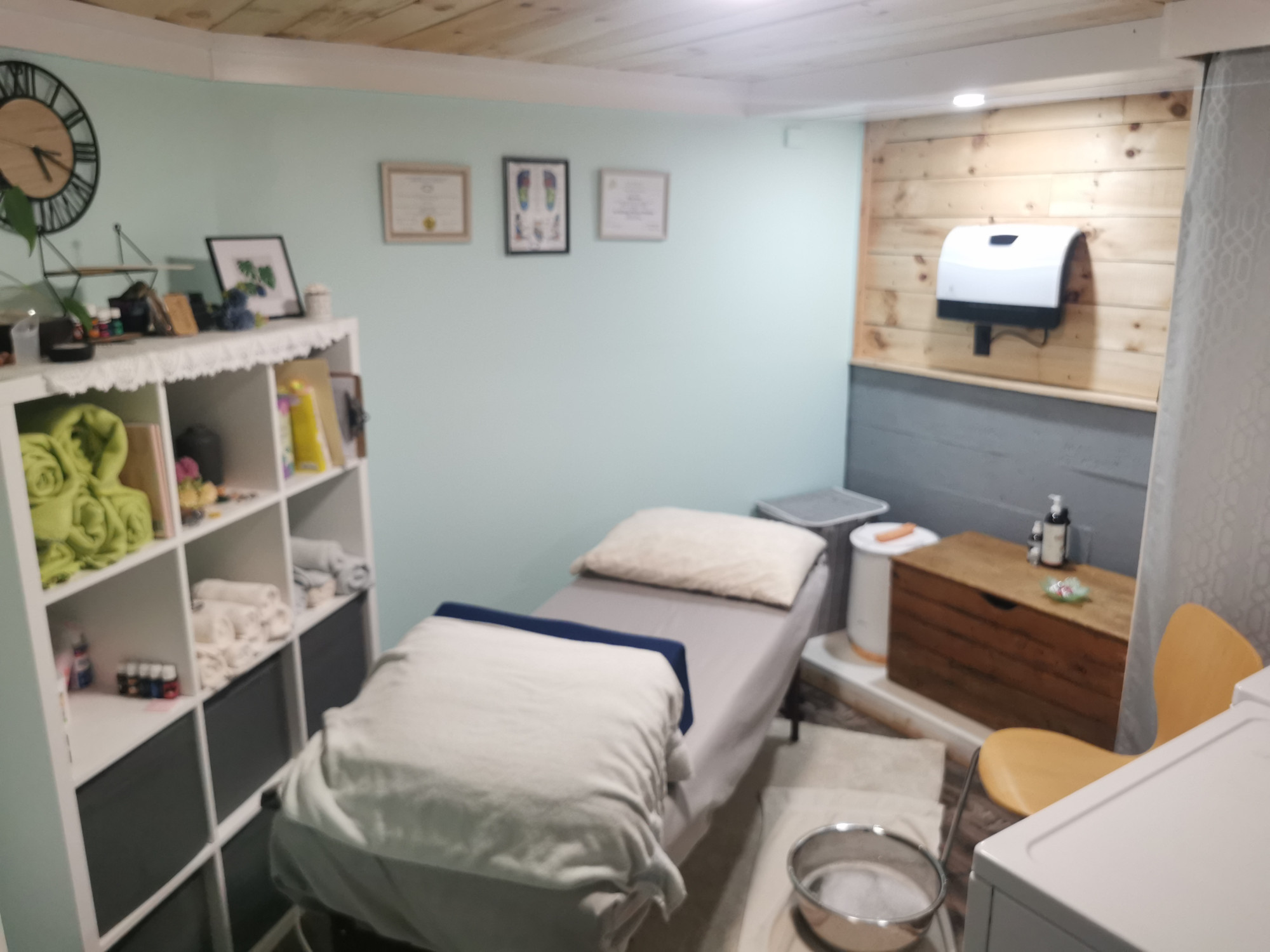 Find out what happens at your reflexology appointment
Find out what happens at your reflexology appointmentEach reflexologist will have a different way of conducting an appointment with their client. I will share a few examples of how a reflexology appointment may look and what a new client may expect coming into an appointment.
The space is dependent on the reflexologist. Some work in a clinical space, some in their home, while others work in a spa setting.
Some have a clinical approach while others have a holistic approach. Some blend the two approaches together.
Investment for your appointment will be dependent on location, province/state, the reflexologists experience and training.
When it comes to reflexology, wearing comfortable clothing is key. You are always fully dressed when you receive a session. Hand, body, face, foot or ear reflexology does not require the removal of clothing with the exception of socks.
Some reflexologists like to have a gentle, relaxing foot soak ready for the clients upon arrival. Others choose to simply wipe clients feet with a damp cloth or wet wipe.
There may be a massage table you lay on, face up, while the reflexologist works on you. They may also have a zero gravity chair or recliner that they prefer to use.
I personally take 5-10 minutes chatting with my clients while they soak their feet. This conversation typically sounds like me asking general questions regarding concerns they may currently have with their physical/emotional health. I ask about areas of focus and explain to the client (if it's their first time) what they can expect with pressure and tenderness.
We cannot diagnose health conditions but having a conversation regarding the health concerns and focus is very important. It helps the reflexologist plan how they will conduct the appointment.
The reflexologist will typically work through all body systems, which help the body come into its ideal balance. With the information you have given them, they will go back and work a specific protocol or treatment plan before ending with relaxation techniques.
Each reflexologist has their own routine of how they do their appointments with clients. You can't expect the same pressure/experience from one to another (just like you wouldnt with your massage therapist)
If you still feel unsure of what to expect during a reflexology appointment, call a local reflexologist in your area and ask them a few questions like
-what can I expect at an appointment with you?
-what are your credentials?
-are you registered?
-can my appointment be covered by insurance? (stay tune to next week's blog regarding this topic)
Come take a look at my current space and what you can expect to see and experience at a session with me!

Have you considered reflexology? Here are my top 3 questions to ask before booking your first appointment.
Reflexology is a beautiful modality that almost every individual can benefit from. It is important to ask your reflexologist a few key questions before you book your first appointment with them.
Q- Do you have an intake health history form?
It is extremely important that your reflexology therapist gains your health history before doing any work with you as a client. There are a few things that may consider you high risk for receiving a reflexology session so it is very important for your reflexology therapist to have a understanding of your past and current health history as well as goals.
Filling out a form prior to your appointment will help set everyone up for success.
Q- What are your qualifications?
There are a lot of options for education when it comes to reflexology but it is important to know that your reflexology therapist has received the proper training prior to working on clients. You can ask them about the schooling and what certification they hold.
Q- Are you registered and insured?
Being registered and insured isn't a requirement but it holds that reflexology therapist to a higher standard. Being registered requires members of that association to develop their knowledge and skill through continued education and professional development while increasing awareness of professionalism and public safety. Being insured insures a level of safety for both you and the therapist.


